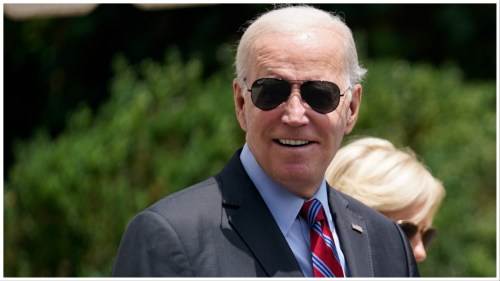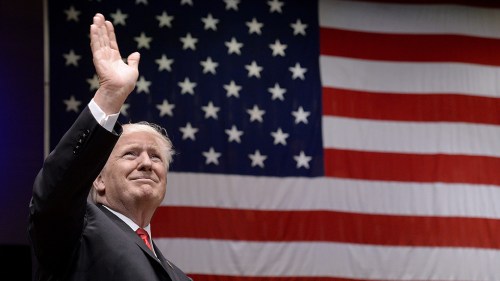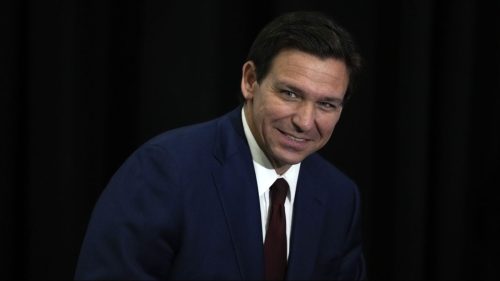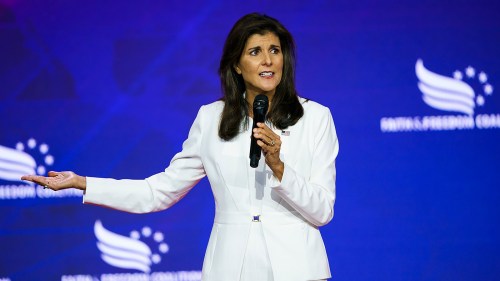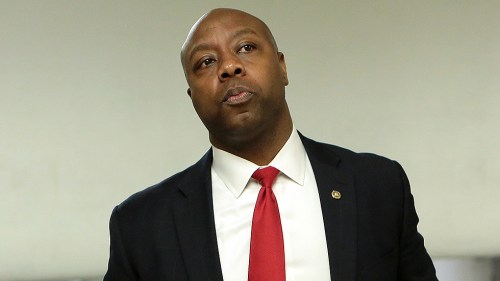Biden seizes on student debt relief amid worries about young voters
President Biden is pushing forward with plans for “life-changing” student debt relief as he courts young voters amid signs that the critical voting bloc could turn away from his party or simply sit out in November.
A new NPR/NewsHour/Marist Poll released last week found former President Trump up 2 points over Biden among millennial and Generation Z Americans — an age group frustrated with economic strains and stressed about student debt.
Leaning in on student debt relief could help boost Biden’s standing with the key demographic, “where he could use some shoring up of his support,” said Morley Winograd, a former senior policy adviser to Al Gore and the author of multiple books on millennials.
“Today, too many Americans, especially young people, are saddled with unsustainable debts in exchange for a college degree,” Biden said in Wisconsin on Monday, acknowledging the key demographic in a battleground state vital to his reelection bid.
His remarks came as he unveiled a new initiative to ease debt for millions of borrowers, part of his effort to make good on his 2020 campaign promises and to court young voters who may be gravitating away from the party.
“It’s going to be very difficult for him to put together a winning coalition without getting the support of voters under 45,” Winograd said.
Younger voters’ impatience has grown after the Supreme Court stymied Biden’s earlier student debt relief plan, forcing the president to find a workaround.
Although many older Americans are also saddled with student debt, the issue is top of mind for younger voters already anxious about coming of age in a fraught economy.
“Younger people who are thinking about going to college — can they afford it? Younger people who are in college — can they afford to stay in college? And then younger people who just graduated — can they find a job in their field and pay back these loans?” said Joshua Ulibarri, a Democratic pollster who focuses on young voters at Lake Research Partners.
“Like all Americans, young people, young voters are struggling with the cost of housing, the cost of food, ‘can I stay on my parents’ health care plan?’ And so just the cost of things is the No. 1 issue,” Ulibarri said.
Amid these pocketbook pressures, swathes of Americans of all ages appear unenthusiastic about the Biden-Trump rematch that’s set to take the stage in November. Young Americans in particular have made vocal their worries about whether Biden’s too old for another term, and their growing anger over the administration’s handling of the war in Gaza.
An ongoing push for protest votes against Biden in Democratic presidential primaries has also resonated in large part with young voters.
“I think it’s never wrong to be concerned and to be stressed about our Democratic numbers within the base constituencies, and especially with young voters,” Ulibarri said. “We are really overreliant on young voters, and especially young women, and so it’s really critical for us to pay attention to those numbers and to make sure we’re doing all we can to turn them out.”
Ulibarri argued that Biden’s current standing with young voters is “good, not great.”
“And it needs to be great for Biden to win a second term and for Democrats to win back control of the House and be competitive in the Senate races,” he added.
To that end, resurging and underscoring the administration’s efforts toward student debt relief could be a step in the right direction when it comes to reaching and energizing young voters.
An analysis released Monday by John Della Volpe, the director of polling at the Harvard Institute of Politics, noted that government action on student debt has broad backing, with majority support even among voters who have already paid off their loans or don’t have debt themselves.
Canceling student loan debt is most important to Gen Z and young millennial voters compared with older generations, according to Della Volpe — and most important to Black and Hispanic voters, compared with white, non-Hispanic voters. The analysis also found that a majority of all voters think forgiving student debt will help strengthen the American economy.
“Millions of young voters placed their trust in President Biden based on his commitment to this issue, and [Monday’s] announcement underscores his dedication to fulfilling that promise despite many roadblocks from Republicans and challenges from the Supreme Court,” Della Volpe wrote in his Substack focused on Gen Z.
Republican Sen. Bill Cassidy (La.) was one of the voices criticizing Biden’s Monday move, calling it “an unfair ploy to buy votes before an election.”
But Jack Lobel, spokesperson for the Gen Z group Voters of Tomorrow, one of 15 youth voter groups that endorsed Biden last month, pushed back.
“If that’s buying votes, then who knows what you call Trump’s tax cuts for the rich,” Lobel told The Hill.
Biden’s new plan would largely address Americans with “runaway interest” and borrowers who have been paying loans for 20 years, among others. It will likely be months before these plans are finalized, and they could still face legal challenges.
The plan caters to older borrowers, said Sabrina Calazans, managing director at the nonprofit Student Debt Crisis Center, but she stressed that the move is still a hopeful sign for young Americans. A young borrower herself, Calazans said she isn’t likely to see her own debt canceled through the latest proposal if it does go through.
“While young folks aren’t necessarily benefiting directly from these massive cancellation plans, they are still benefiting from low monthly payments and from an improved system overall,” Calazans said.
The new plan is “proof of the fact that the administration does know that they need to appeal to younger generations,” said Michele Weindling, political director at the youth-led progressive advocacy group Sunrise Movement, which has not made an endorsement in the presidential race.
But at the same time, Weindling cautioned that the administration shouldn’t assume this step on student debt relief outweighs other concerns young voters have about who’s in the White House.
“I think that it would be unwise for the administration to assume that one good thing cancels out one horrendous thing,” Weindling said, pointing to the conflict in Gaza. “That’s not how young people think. They’re not single-issue voters.”
Biden isn’t in danger of losing the youth voter cohort altogether in 2024, and despite some recent polling, experts are skeptical that young Americans would flock to Trump instead — but there’s a real risk that significant portions of the cohort sit out or turn to a third party.
“There is enough indication to suggest at this point that some members of the Democratic coalition who are on the younger side are … looking for an alternative now,” Winograd said.
A February poll from Axios-Generation Lab found that more than half — or 58 percent — of surveyed voters between 18 and 34 aren’t sure if they’ll vote on Election Day.
“The youth vote is a very late-deciding and, in many cases, late-voting vote. And so there’s time to figure out how that goes, but there’s also the challenge of them not being totally engaged, and you having to do things that get their attention,” Winograd said.
Copyright 2023 Nexstar Media Inc. All rights reserved. This material may not be published, broadcast, rewritten, or redistributed. Regular the hill posts
Video/Hill.TV

